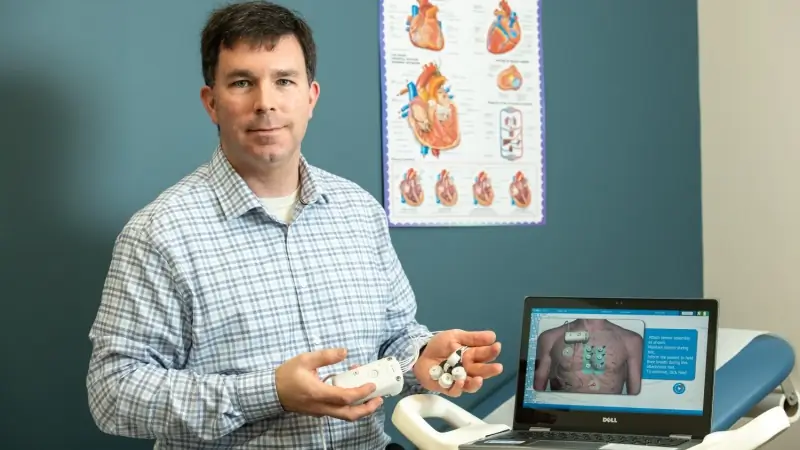
Momentum continues to build at AusculSciences as the local biotech firm gets one step closer to bringing its latest health-care technology to market.
Stemming from the company’s existing acoustic sensor system – used to detect coronary artery disease by listening to the sound of the blood flow to the heart – the Kanata North-based team created Auscul-X, a remote-operated stethoscope that allows doctors and nurses to listen to the hearts and lungs of patients from outside of the room.
The 21-person team has worked closely with local institutions such as the cardiac critical care unit at the University of Ottawa Heart Institute – which will begin testing the technology next month – to measure its effectiveness in keeping potentially infectious doctors and nurses away from patients who are recovering from complex cardiac surgery, says John Phillips, vice-president of business development at AusculSciences.
The local company is also working with the Innovative Solutions Canada program, which will have the technology tested by a government department in the hopes of getting the system to market by December 2020.
“We’ve all seen the statistics of the number of doctors, nurses and health-care workers who have been affected by COVID-19 primarily through contact with their patients,” Phillips says. “They really need to be protected from the virus to be able to do their job properly, and we’re trying to help them do that.”
Taking a new approach
While this new technology wasn’t on the company’s radar, the coronavirus pandemic forced the team to think outside the box after the initial research and testing projects they were engaged in had to be put on hold, he says.
“Like many other businesses, we had to pivot our approach, but we were able to do that using the technology that we’ve been developing for the past five years,” he says.
The Auscul-X system connects acoustic sensors, which are placed on the patient’s body, to a monitoring device through a wireless network, allowing a physician to monitor a patient’s lungs or heart from outside the room, or even from 100 kilometres away.
By creating distance between the patient and the doctor, the system is able to not only prevent them both from contracting COVID, but it also saves the health-care workers time and resources by not having to change their PPE between each visit.
“We know that personal protective equipment is in short supply, so this is just another way to help protect those that are helping us,” adds Phillips.
The sensors in the Auscul-X system are effective for up to three days before needing to be changed, which could alter the way doctors care for patients even after COVID has passed.
Having the ability to offer care from a distance could be an effective tool in rural areas where patients might be a long way from a hospital, says Phillips, and could ultimately save physicians valuable time if they need to check in on a patient multiple times a day.
“This technology is almost like streaming on the internet,” he explains. “Once you connect something like this to a network, the limits to where it can go are unlimited.”
By Lisa Thibodeau
